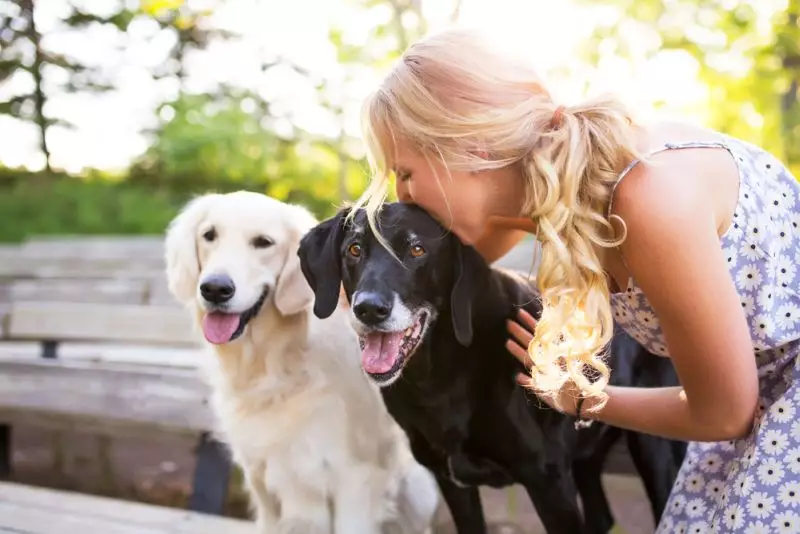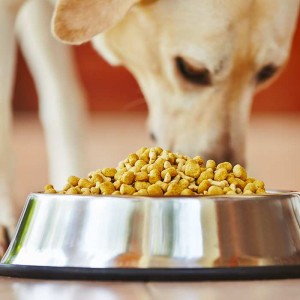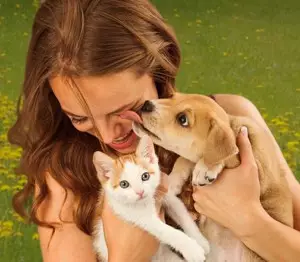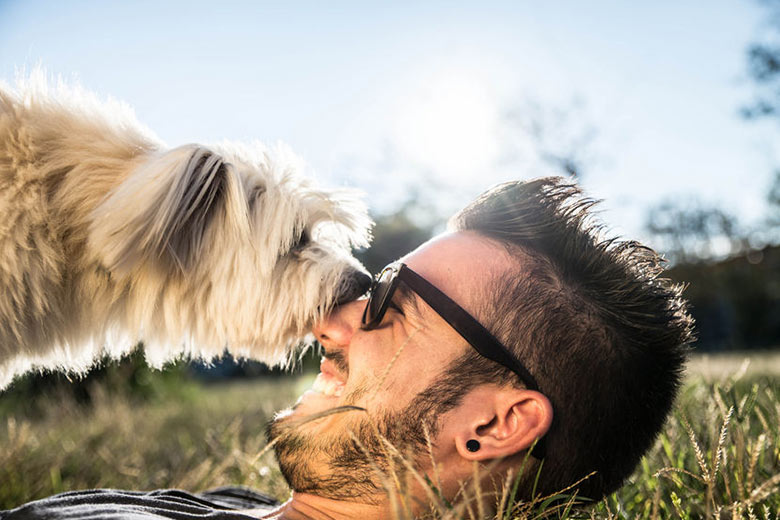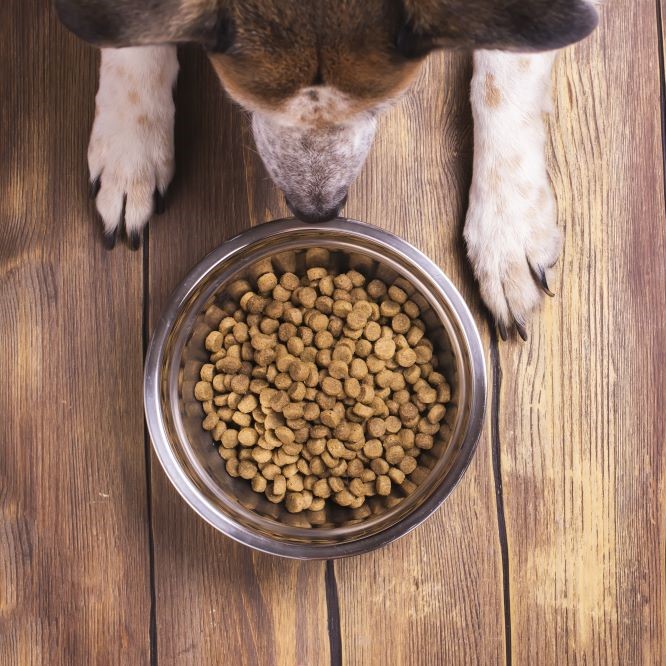Why do dogs eat grass?
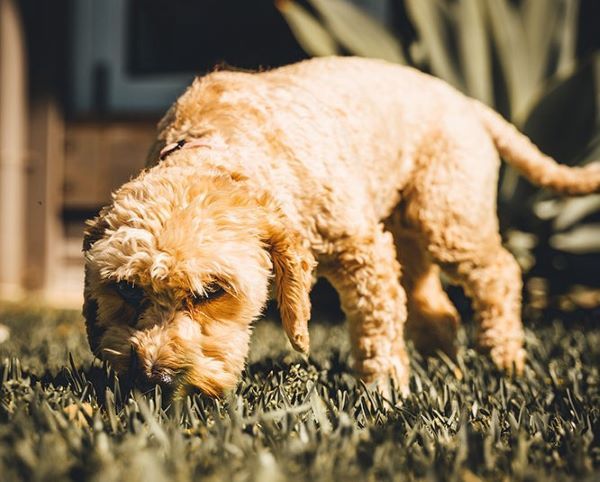
Ever wondered why your dog refuses to eat celery, cucumber or other raw greens, but is more than happy to munch on grass? Unlike ruminants such as cows and horses, a dog’s digestive system is unable to process grass, a fact that has added to the mystery of this unusual habit.
Whether you’re concerned about your dog’s wellbeing, or simply curious about why dogs eat grass, this article will shed some light on the strange behaviour of dogs eating grass, and some of the possible reasons why they do it.
1. They feel sick
It is a common belief that dogs that are feeling nauseous will consume grass in order to vomit. In fact, many dogs do tend to eat grass when they have an upset stomach or are vomiting, but the reason why they do so is unclear.
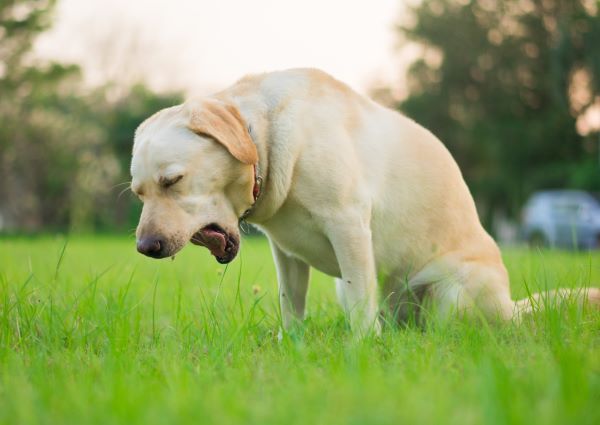
One theory is that eating grass is an instinctive habit, learned many hundreds of thousands of years ago when dogs were primarily scavengers that would eat whatever they could find in their environment, not all of which would agree with them. Hence the need to be able to induce vomiting to rid themselves of any nasty substances they ingest.
Another school of thought is that eating grass actually soothes any irritation in the stomach and, when it feels better, the dog simply throws up the grass.
However, if you’ve observed that your dog eats grass fairly often, you’ll know that they certainly don’t throw up every time they eat it. In fact, many dogs are regular grass nibblers who eat the stuff when they are not sick, and rarely, if ever, vomit after their customary snack.
Unsure how serious it is?
Bow Wow Meow policyholders can get access to trusted vet care anytime, anywhere, at no additional cost. Connect to an experienced Australian registered vet via video call, 24/7. Whether it’s providing vet advice, setting up at-home treatment plans, or confirming if you need to visit a vet in person, you can get help when you need it.
Find out more about our pet insurance cover options.
2. They lack fibre
This theory assumes that dogs eat grass because it contains fibre, and they are lacking fibre in their diet. Many owners and experts have claimed that dogs tend to stop eating of grass when they are fed a high-fibre diet.
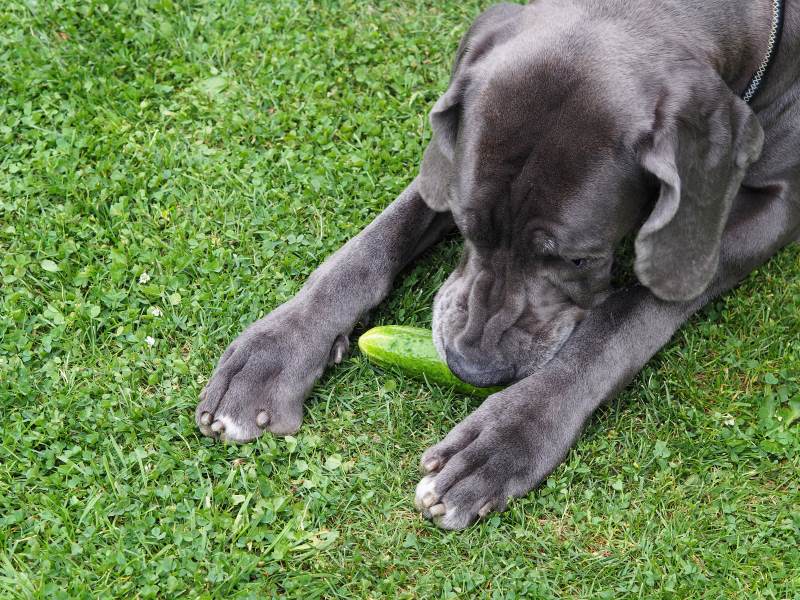
To test this out on your grass-munching dog, you can try supplementing their diet with some dog-safe fruits and vegetables, such as blueberries, carrots, apples (seeded and cored), cucumber, broccoli, peas, spinach and green beans. If they slow down or stop their grass munching, then you’ve probably found the cause!
Be aware that a diet that is too high in fibre can cause stomach upsets, as can a diet that is too low in fibre, so give these foods in moderation.
3. Boredom
The theory here is that dogs will resort to nibbling on grass when they’re feeling bored, just like humans indulge in ‘bad’ eating habits to fill in the day. In other words, dogs may resort to eating grass as a way to occupy themselves when not given enough attention or play time.
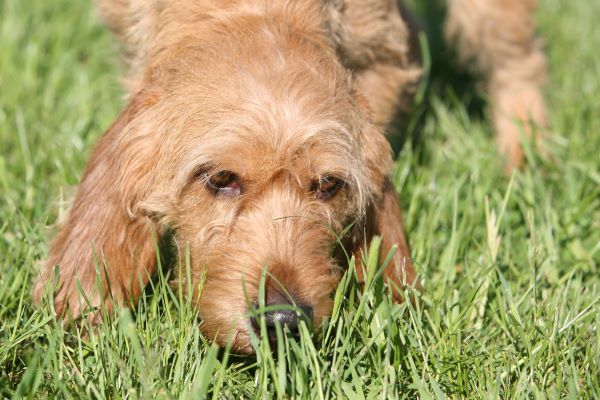
This may well be the case if your dog often spend long periods alone in the garden or yard. In this case, the experts suggest, if you notice your dog is eating grass excessively, try giving them more time and attention, as well as some chew toys and interactive toys to occupy themselves while outside. Many dog owners have said that once their dog is preoccupied with something else more interesting, their grass eating seems to stop.
However, if your dog loves to munch on the grass while out on walks or at the park, and is typically uninterested in the grass at home, boredom is unlikely to be the underlying reason.
4. Scavenger instinct
Another common belief is that dogs eat grass because of their scavenger roots. For thousands of years, dogs had to survive by opportunistic scavenging and, when food was scarce, may have become accustomed to consuming grass, along with berries, seeds and even insects.
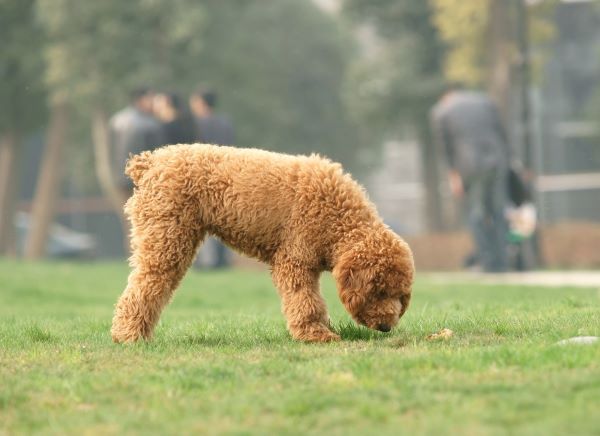
Although your dog no longer needs to scavenge or hunt for their food, they haven’t lost their natural instinct for these activities. If your dog loves to scavenge, there’s a good possibility that they enjoy snacking on grass, and if so, this “problem behaviour” is not really a problem at all, as long as it doesn’t make them sick!
5. They are hungry
This theory would mean that dogs are far more likely to eat grass at times when they’re feeling peckish, for example in the middle of the day, and that the hungrier they are, the more of it they will consume.
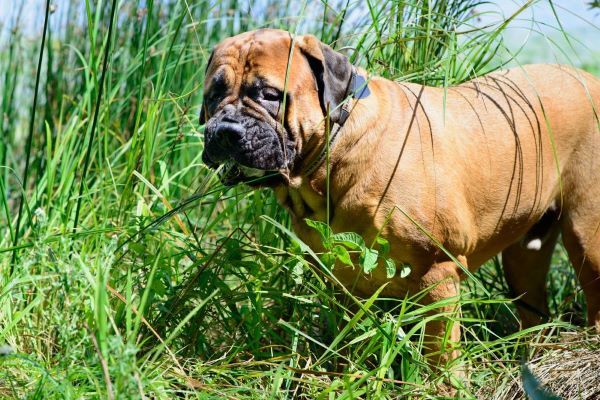
You could test out this theory by spreading out your dog’s meal times. If you’re feeding them once or twice a day, try splitting up meals into smaller amounts and providing them more often.
If your dog is always looking for something to eat, even straight after a meal, it is unlikely to be hunger driving them. More likely it’s because they enjoy the hunt and the process of eating as much as the food itself.
6. Dietary deficiency
It is thought that some dogs eat grass because they are lacking certain vitamins or minerals in their diet, either as a result of a health condition or poor quality nutrition. It’s best to see a vet if you are concerned that this may be the reason why your dog eats grass.
7. Anxiety and compulsive behaviour
Some experts believe that the eating of grass could be driven by anxiety. Dogs, just like humans, can develop conditions like Obsessive Compulsive Disorder (OCD), where certain behaviours are triggered when the animal feels anxious or nervous. There are a number of behaviour patterns that can develop because of OCD, but grass eating is thought to be a fairly common one.
Conclusion
 Most dogs will eat grass at some time in their life. Dogs are naturally curious, and they may initially eat grass while exploring their environment, and find that it tastes good. In most cases, eating grass is generally not harmful, and some dogs may even develop a habit of eating grass regularly, without any underlying health issue.
Most dogs will eat grass at some time in their life. Dogs are naturally curious, and they may initially eat grass while exploring their environment, and find that it tastes good. In most cases, eating grass is generally not harmful, and some dogs may even develop a habit of eating grass regularly, without any underlying health issue.
Nevertheless, grass isn’t the best snack for your dog. It may have been sprayed with herbicides and pesticides that can be toxic to dogs, and there’s a chance the dog may ingest parasites in the soil along with the grass.
Grass eating can cause vomiting and other digestive issues in some dogs, so owners should monitor their dogs’ intake and be aware of any unusual behaviours or symptoms that may indicate something more serious is going on. If grass eating becomes excessive, or you have any concerns about your dog’s health or behaviour, it’s best that you consult your vet.



